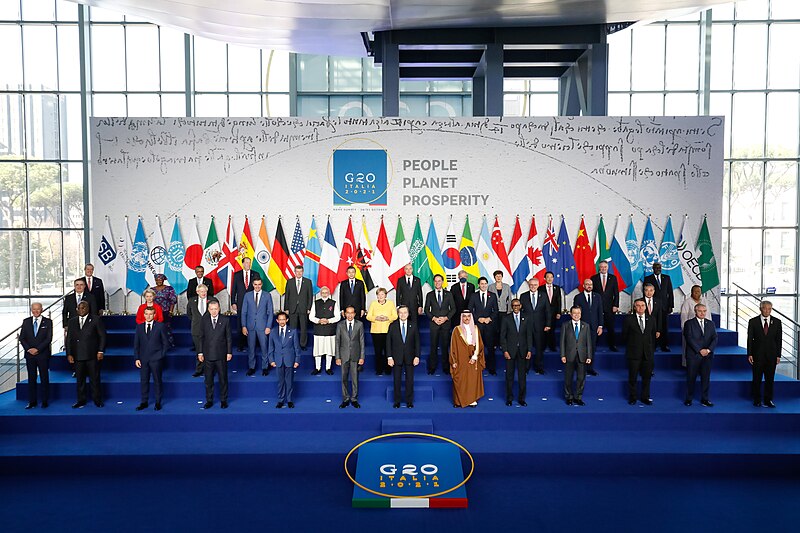The COP29, the United Nations conference on climate change held in Baku, Azerbaijan, is grappling with mounting tension as negotiations on climate financing encounter significant roadblocks. The UN’s climate chief, Simon Stiell, issued a strong appeal to the leaders of the world’s largest economies, calling for a clear demonstration of support for global climate financing goals. The upcoming G20 meeting, scheduled to take place next week in Rio de Janeiro, is widely viewed as a critical opportunity to unlock negotiations and enable concrete agreements to tackle the global climate crisis.
The COP29 negotiations have been marked by deep divisions between developed and developing countries, particularly regarding financial responsibility and long-term commitments. On Saturday (16th), an initial 33-page draft agreement was condensed to 25 pages, signaling an attempt to consolidate the most urgent points. However, many negotiators highlight that the most sensitive issues, such as the volume of necessary financing and which countries should contribute the most, remain unresolved.

Simon Stiell, Executive Secretary of the United Nations Framework Convention on Climate Change (UNFCCC), underscored the importance of a “clear political signal” from the G20 to drive negotiations in Baku forward. In a letter sent to the leaders of the world’s largest economies, he emphasized that “next week’s summit must send unequivocal global signals.” Among his key demands, Stiell called for a significant increase in subsidies, new loan models, and debt relief for developing nations, which often face enormous economic challenges exacerbated by climate impacts.
“The burden of debt is suffocating the most vulnerable economies, making bold climate action nearly impossible. It is essential to ensure that developing countries are not hindered by excessive debt servicing costs,” Stiell warned. His plea highlights the risk of climate negotiations stalling without proactive involvement from G20 nations.
The business sector has also joined the chorus of voices calling for a more ambitious response from the G20. A coalition of business groups, including the We Mean Business Coalition, the United Nations Global Compact, and the Brazilian Business Council for Sustainable Development, issued an open letter urging governments to adopt more aggressive policies to accelerate the global energy transition.
“We are deeply concerned about the lack of progress and focus in the Baku negotiations,” the coalition stated. They stressed that an accelerated shift from fossil fuels to clean energy is essential to unlock private sector investments, which will be indispensable for achieving global climate goals.
The G20 meeting is seen as a turning point for climate negotiations. Ana Toni, a Brazilian representative and climate authority, emphasized that “we expect a very strong signal on climate from G20 leaders. This will be vital to unlocking the negotiations in Baku.” The expectation is that G20 countries will demonstrate a commitment to establishing a new annual financial target, involving combined efforts from wealthy nations, multilateral development banks, and the private sector.
Economists present at COP29 estimated that developing countries will need at least $1 trillion annually by 2030 to address the impacts of climate change and finance the transition to a low-carbon economy. However, discussions remain stalled on fundamental issues such as who should bear the costs and how resources will be distributed.
Mattias Frumerie, Sweden’s climate envoy, acknowledged the slow progress and pointed out that divisions between countries “leave little room for immediate advances, increasing the pressure on ministers next week.”
One of the most contentious issues at COP29 is the resistance of major oil producers, such as Saudi Arabia, to advance discussions on the global transition away from fossil fuels. European negotiators accused the Saudi government of blocking debates on how to implement commitments made at COP28, held in Dubai last year. These commitments include a plan to accelerate the energy transition and gradually reduce global reliance on oil, coal, and natural gas.
When asked by the press, Saudi Arabia did not immediately respond to requests for comment. However, European negotiators expressed frustration, with one stating that “progress on this issue has been virtually nonexistent so far.”
Developing countries have reiterated that a robust agreement on climate financing is essential for their active participation in the global energy transition. Ruth Nankabirwa, Uganda’s Minister of Energy, highlighted the need for accessible resources for clean energy projects: “When we look around and see no money, we wonder if we will ever truly embark on the energy transition journey,” she said.
The reality faced by these countries is that without adequate financing, adopting low-carbon technologies and adapting to climate change impacts remain out of reach.
Samir Bejanov, Deputy Chief Negotiator for COP29, called for greater unity and commitment from nations to overcome the differences stalling negotiations. “In recent days, some have doubted our ability to deliver meaningful outcomes. Now is the time for negotiators to prove them wrong,” he declared at a press conference.
With climate impacts worsening worldwide—including extreme weather events, billion-dollar economic losses, and population displacements—the decisions made at COP29 and the G20 meeting will have profound implications for the planet’s future. Although progress in negotiations has been slow so far, pressure is mounting for world leaders to demonstrate bold leadership and unwavering commitment. Time is running out, and the world’s eyes are on Rio de Janeiro and Baku in the hope of a more sustainable future.

